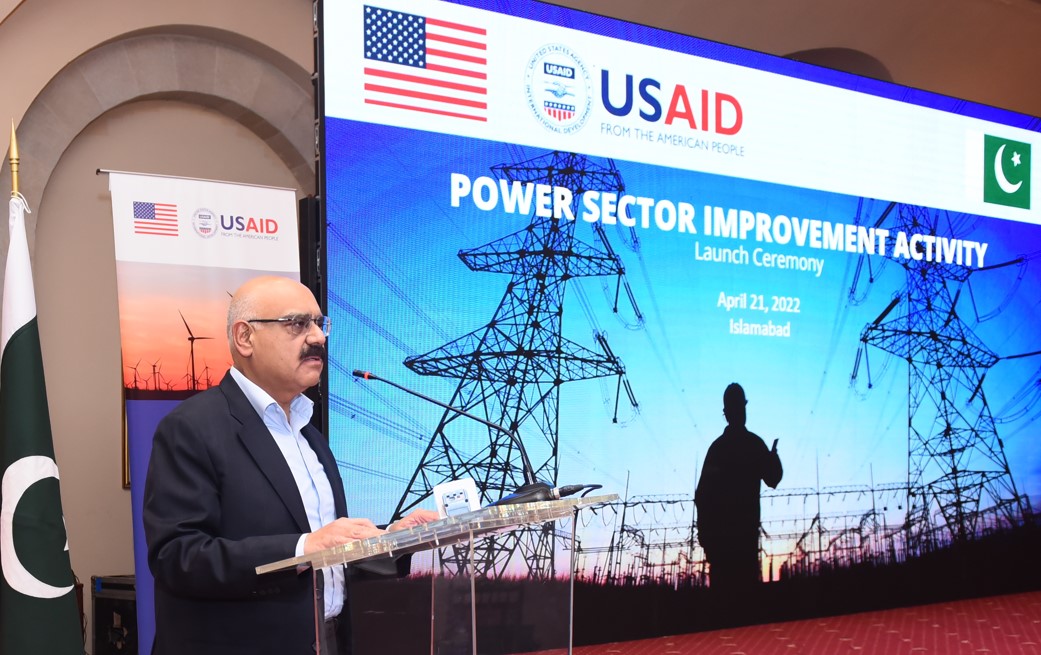Zeshan Javaid
Amid criticism from former Prime Minister Imran Khan, the US announced the start of a four-year, $23.5 million project in Pakistan to improve the country’s power sector.
Pakistani Prime Minister Imran Khan has accused the United States of plotting to destabilize its government.
He also claimed that the US had backed opposition to his removal from office via a no-confidence motion.
US Power Project to improve share of Green Energy
The project aims to increase the share of green energy in Pakistan’s energy mix, USAID Mission Director Julie A. Koenen said in a statement.
He said that Washington looks forward to advancing its partnership with Pakistan to build a clean, efficient, and reliable electricity generation sector.
Through this new initiative, USAID will partner with Pakistan to support the transition to a truly competitive wholesale power market, USAID Mission Director Julie A. Koenen said.
The power sector in Pakistan is currently dealing with a number of issues, including rising electricity prices, electricity theft, and circular debt.
The circular debt is haunting all governments in Pakistan.
Is a Complete Green Energy Transition Possible in Pakistan?
The previous governments had made all-out efforts to overcome power sector issues. But they had not been able to address them.
Power distribution companies (Discos) are also dealing with a number of issues related to power theft, which has resulted in circular debt.
Electricity Theft
During the distribution of electricity to customers, nearly 30% of it vanishes.
There are several companies in KPK, Sindh, and Balochistan where losses were high and recovery was too low to plague the entire energy chain.
During the previous government of PTI, the circular debt had almost swelled to double-figures at Rs 2.5 trillion.
When the PTI government took power in 2018, the PML-N government had left it at Rs 1.6 trillion.
To enter into a deal to reduce electricity rates, the PTI government paid IPPs around Rs 200 billion.
Senate Passes WACOG Bill to bail out PSO, SNGPL
But these electricity rates continued rising due to passing on inefficiencies to the honest consumers who were paying regular bills.
Poor Performance in Power Sector
Poor governance in the provinces of KPK, Balochistan, and Sindh resulted in increased electricity losses and theft, which contributed significantly to the growing circular debt.
The power sector’s inefficiencies had also caused problems in the oil and gas sector, which had a circular debt of around Rs 1.5 trillion.
LNG was another fuel that led to piling up circular debt in the oil and gas sectors.
At present, PSO was to receive Rs 272 billion from SNGPL on account of non-payment of dues against LNG supply.
Mr. Shah Jahan Mirza, Managing Director of the Private Power Infrastructure Board, praised USAID for its strong partnership, innovation, and sustained cooperation in supporting Pakistan’s transition to clean energy and said he looks forward to continuing the partnership to improve Pakistan’s power sector performance.
Over the last 75 years, the U.S.-Pakistan partnership has improved Pakistani lives by building dams and transmission lines, responding to humanitarian emergencies, and combatting shared challenges like the COVID-19 pandemic, climate change, and water vulnerabilities.
To expand Pakistan’s energy supply, the United States and Pakistan have built three dams– Gomal Zam dam in South Waziristan, Satpara dam in Gilgit Baltistan, and Golen Gol dam in Chitral, Khyber Pakhtunkhwa, adding 143 megawatts of electricity to the national grid – and together have rehabilitated the Mangla and Tarbela dams and three thermal power plants, and connected more than 860 megawatts of commercially-funded wind and solar projects to the national grid.

